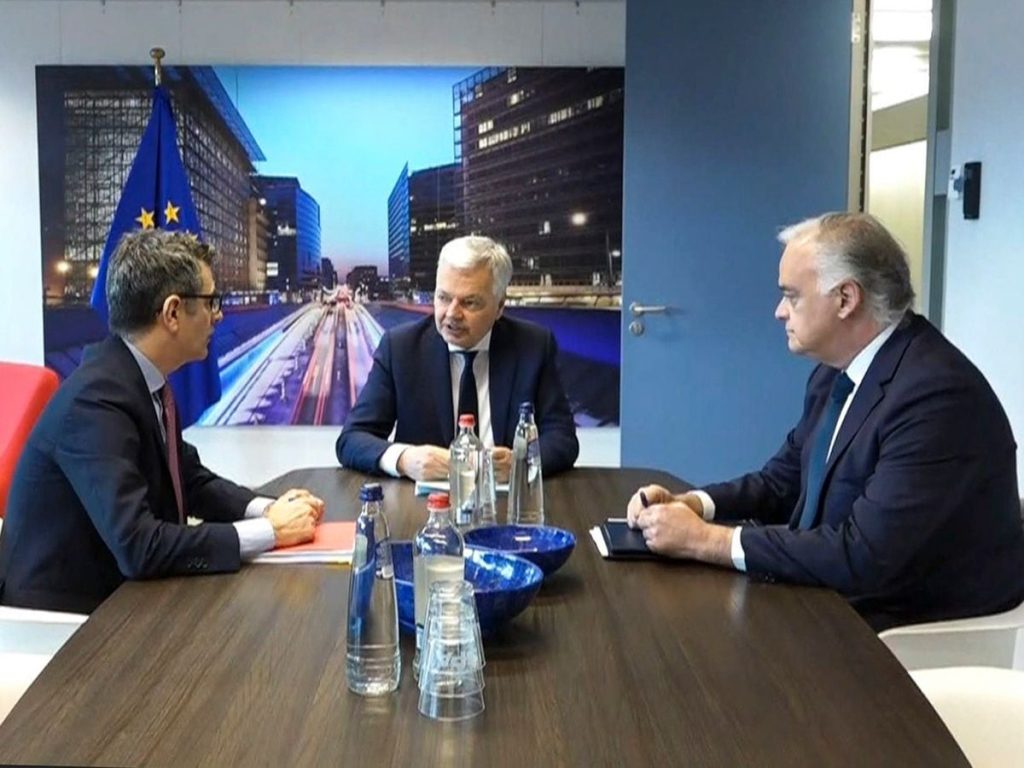European Commissioner for Justice Didier Reynders has not yet received any “political signals” from the two main Spanish parties, the PP and the PSOE, to continue negotiations on the renewal of the General Council of the Judiciary (CGPJ) under his mediation, as requested by the Popular Party and agreed to by the Socialists. Reynders stated to a group of journalists in Brussels that an agreement is “very close,” but made it clear that without “political will” from both parties, it will not be possible to achieve it. Reynders, who was prepared to travel to Madrid for a new meeting on March 27 that was ultimately canceled, will be leaving his post at the end of this month, but indicated that the Commission will remain available afterwards if the parties require it. However, he emphasized that the PP and the PSOE must take the first step and that both parties should also communicate with each other before turning to Brussels.
The Belgian Commissioner believes that an agreement on the renewal of the CGPJ is “very, very close,” but stressed that “it is a matter of political will to know when it wants to be done.” The General Council of the Judiciary, which is not a court but the governing body of all judges in Spain, has had its mandate expired for over five years due to the PP’s resistance to negotiate with the PSOE for the renewal of its members, who are appointed by the Courts. Reynders agreed at the end of January, at the request of the PP, to lead a “structured dialogue” to unblock that negotiation and set a deadline of two months to achieve it. The date passed and an agreement is still not in sight.
Reynders is going on a leave of absence starting on April 25 to focus on his campaign, as he aims to lead the Council of Europe, an organization not dependent on the EU. Reynders shows his “availability” to continue negotiations during this extra time, but warns that he cannot do anything if the PP and the PSOE do not request it. “Since 2018 we have been trying to renew the CGPJ. I have tried a lot, two years ago even with contacts in Madrid, but we have not achieved it […] I am available at all times and I have told the two parties this. The Commission, in any case, will remain available if the parties believe that they need to wait some time,” he said, without revealing who could take over the mediation in his place.
Reynders has shown a somewhat skeptical—although not closed—attitude towards exploring “alternative formulas” to the political route to renew the CGPJ, as proposed the day before by the acting president of the body, Vicente Guilarte. “I am always willing to receive proposals, but they have to be concrete proposals, tell me how to work, because I work based on existing texts,” explained the Commissioner. “If we want to renew the CGPJ, we have to go through the procedure provided for by Spanish law,” he said. That is, negotiations between parties. Reynders also recalled that for the past two years, the Commission’s annual report on the Rule of Law states the recommendation is to “urgently renew the General Council of the Judiciary and then undertake the reform [to change the method of election].” “I hope we can find the political agreement to successfully complete these two operations. If there are other ideas, I am willing to receive them, but above all, we must apply Spanish legislation,” he added.


